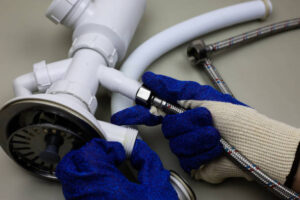Nothing worse is walking into the shower expecting warm, soothing water and then being showered with an arctic chill. When your water heater goes down, you need 24 hour water heater repair—not tomorrow, not next week but right now. While some problems might wait, others? They need prompt attention unless you wish to handle more significant issues, costly repairs, or even possible hazards.

One hardly has hot water at all.
If suddenly your water heater stops producing hot water, something is amiss. While electric models could be dealing with a tripped breaker or a fried heating element, gas heaters could have a broken pilot light or a gas supply issue. Cold showers, then, signify that your heater is flashing a white flag, not alone make them uncomfortable. Even if a basic treatment is probably, if you hear unusual noises or see other problems you should consult the professionals.
2. Leaking Water Heater: Disaster Still Under Development
Water gathering around your heater seems to be a ticking time bomb. Little leaks can cause significant structural damage or a flooded basement even if they seem benign. The offender can be faulty connections, defective pressure releasing valves, or corroded tanks. If you come across even a small puddle, don’t ignore it; today’s tiny drop could grow into a waterfall tomorrow.
3. Strange Sounds That Point to Issues
Water heaters should not groan, pop, or rattle unlike an ancient car struggling uphill. If yours sounds scary, sediment accumulation most definitely has a part. Over time, the minerals in hard water settle at the bottom and create a barrier that forces the heater to operate more aggressively. From this follows overheating, cracks, or possibly a full-fledged breakdown. Although draining the tank might help, if the noises persist professional attention is definitely required.
4. Water resembling rotten eggs
Turn on the tap and suddenly you smell like rotten eggs. Your water heater is warning you of tank interior bacterial development. Designed to prevent rust, the anode rod could mix with sulfur to create that terrible smell. While sometimes a simple clean and anode replacement will fix it, persistent smells could indicate something more dangerous. You want final nothing to wash in contaminated water or drink.
5. Lukewarm or scorching scalding water—a Thermostat Gone Rogue
If your water is either hardly warm enough to wash your hands or suddenly hot enough to peel paint, your thermostat most likely is the issue. Your water heater is practically as dependable as a mood swing as a malfunctioning thermostat can cause temps to surge or plummet. Changing the settings could assist; nevertheless, if the issue persists you are looking at a repair or replacement.
6. Discoloured Water: Rust on the pipes?
Brown or reddish water from your taps is never a good indicator. If it just comes from the hot water side, your heater’s tank could be rusting from inside out. Usually the offender is an anode rod old or decreasing. Ignoring this problem could lead to leaks, corrosion, and finally an absolutely useless water heater. Not only ugly, but rusty water is a warning sign you should not ignore.

7. Pilot Light Still Leaves Us Short
Gas water heaters run continuously under a pilot light. Should yours refuse to stay lighted, you may be dealing with a malfunctioning thermocouple, a gas supply problem, or an airflow problem. A draft in your house could blow out the flame occasionally, but if relighting doesn’t fix the issue you will want a specialist. You wouldn’t want to handle gas-related problems alone.
8. High Energy Consumption: Your Heater Is Waste of Money
Has your electricity bill gone crazy without clear explanation? Your water heater may run continuously from failing components, silt build-up, or insulation issues. Working harder burns more energy, and the more money flies out of your wallet. If your power bill seems abnormally high, your water heater could be the quiet thief behind it.
9. Water Pressure Like to a Trickle
Low water pressure from your hot water taps can indicate a clogged line, a broken pressure valve, or a tank problem generally. Hard water mineral deposits can block pipes, which would make showers seem to be more of a drizzle than a rinse. If only your hot water is affected, your water heater most certainly is the source. Early rather than later checking will help you from paying a costly replacement.
Ten years old and the Unit is performing.
Water heaters are not lifetime equipment. If your ten-year-old is showing signs of failure—leaks, inefficiencies, or strange noises—you are living on borrowed time. Older models become less trustworthy and more expensive to run. It makes more sense to replace an outdated heater before it leaves you in the cold than to keep one running nonstop.
Not Wait Until Too Late
Not only an irritation, but a broken water heater can lead to expensive repairs, water damage, or even safety issues. Call for 24-hour water heater repair should you notice any of these red lights. Ignoring the problem won’t make it go away; but, a fast fix could save time, money, and a lot of irritation.
The dangers of ignoring water heater problems
If one thinks they will solve themselves, small issues can be quickly dismissed. On water heaters, however, minor issues often lead to more major ones. Beginning as a tiny drop, a leak can turn into a full-fledged deluge damaging floors, walls, even electrical equipment. An overheated appliance or broken thermostat could burn uninformed people. The worst of all is that gas leaks from a malfunctioning heater might cause explosions or carbon monoxide poisoning threatening your entire property.

Just waiting to tackle a problem raises the cost. Left too long, a basic part replacement now might turn into a whole system replacement. If you have unexpected sounds, odors, or changing temperatures, do not wait. Early professional inspection could save thousands in future repair expenses.
DIY vs. Professional Repair—When to Call in the Experts
Some water heater issues have simple fixes. Resetting a tripped breaker, relighting the pilot light, or adjusting the thermostat might be all it takes. But if you’re dealing with leaks, gas-related problems, or electrical failures, it’s time to bring in a professional. Water heaters involve high temperatures, gas lines, and pressurized systems—not something to tinker with if you’re unsure.


